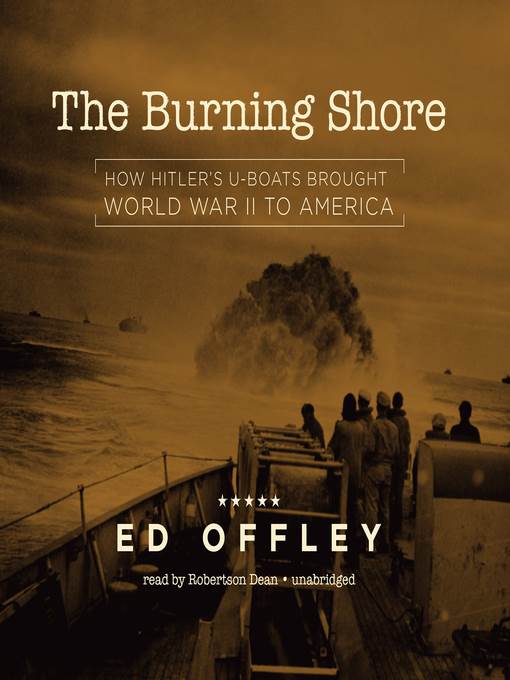
The Burning Shore
How Hitler's U-Boats Brought World War II to America
- اطلاعات
- نقد و بررسی
- دیدگاه کاربران
نقد و بررسی

Along the Eastern Seaboard in 1942, merchant ships were being targeted by German U-boats. Ed Offley profiles the men on one of those U-boats and the Americans who ended their attacks. Robertson Dean's deep voice draws listeners in, and the story keeps them there. Dean wisely lets the accounts of the damage near American shores, the efforts to end the threat, and the harsh conditions the U-boat crews endured fascinate listeners on their own merits. Along the way, anecdotes, such as the one about a "Noah's Ark" ship, break the dramatic tension. It doesn't matter whether listeners are war buffs or those just looking for a good listen; the intriguing detail makes this a gripping WWII story. J.A.S. © AudioFile 2014, Portland, Maine

January 13, 2014
In the first half of 1942, Nazi U-boats ravaged the coastal traffic of a still-unprepared United States as submarines like U-701 and its captain Horst Degen strove to sever the transatlantic lifeline keeping Britain in the war. American antisubmarine doctrine and technology were “a backwater function,” while American air crews like Lt. Harry Kane’s and the men of his obsolescent Lockheed Hudson were civilians in uniform—amateurs fighting professionals. Offley (Scorpion Down), a specialist in underwater operations, evokes the environment of U-boats that were themselves obsolescent—small, cramped, and operating at the limits of their effective range. Only the best commanders brought their boats back from repeated patrols. In three patrols U-701 sank four ships, damaged four more, and laid a minefield that was “an unparalleled success.” On July 7, 1942, Kane and Degen met off Cape Hatteras, NC. Degen was elite, but met his match in Kane: Hudson 9-29-322 became the first Army Air Forces plane to sink a U-Boat in American waters. Offley exemplifies the action as part of an American learning curve that led Degen to congratulate Kane on his attack when they later met in an American hospital—and after four decades they renewed contact, located U-701, and marked the site.




دیدگاه کاربران